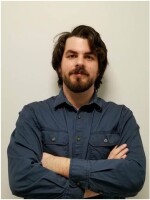Ahead of the annual town meeting on May 22nd, the Williamstown select board is working to finalize fiscal articles for the warrant. At its March 24th meeting, it recommended all but one of the 15 — leaving the town’s share of the Hoosac Water Quality District budget it shares with neighboring North Adams. Select board member Stephanie Boyd said she was concerned with elements of a contract inside the proposal with Casella Waste Systems that would bring untreated residential sewage into Williamstown to be composted.
“The sludge that would importing contains PFAS and since, like a long time, 1961, manufacturers have known that there are a lot of dangers to human health associated with PFAS," said Boyd. "And we as a society are only really becoming aware of those potential impacts in recent years. It's really unfortunate that all these products that we use and are manufactured by others land up as contamination in our sewer, and then now we're responsible for disposing of it.”
The WAMC listening area is well acquainted with forever chemicals. Major regional waterways like the Hudson and Housatonic Rivers face longstanding challenges over cleaning up toxic materials that have seen localities battle with both corporate polluters and the EPA. Others have had to scramble to set up alternative water supplies after confirming PFAS contamination.
“Local governments are referred to as passive receivers, right, because we just received these PFAS in our in our sewer, but I don't think we're as passive when we choose to bring in contaminants, in sludge from other towns," Boyd continued. "So, it's really unfortunate that states and taxpayers didn't cause this contamination, but we're largely shouldering the burden, burden of testing, monitoring, cleaning up contaminated sites, covering healthcare. So, we're really faced with, how do we make the best decision for our town? And this is a really, I think, complex decision that involves financial risk, environmental risk, for some of us, ethical risks.”
Town resident Susan Abrams said the threat is no joke and poses a serious risk to not just Williamstown but to whatever communities would eventually receive the compost.
“There's legislation in front of the Massachusetts legislature right now, H.136, which is about forbidding the spreading of this material, compost or sludge or anything, anywhere in the state of Massachusetts, forbidding selling it, forbidding distributing it and spreading it," she told the select board. "So, that is a bill that's being considered right now. There are also bills about developing a PFAS remediation trust fund to help communities pay for getting rid of this stuff. So there's stuff coming down the pipeline that could really help solve this problem in a way that may not exist at this particular moment, but will be coming soon.”
Some town leaders pushed back on opposition to the plan.
“If somehow we don't want this, there's a substantial financial impact to the community, and I think it's important that that's laid out kind of first breath on this, that the cost of simply moving it out of town is significant, to the tune of several hundred thousand dollars, and that would obviously cause quite a bit of disruption to the balanced budget that we have now in front of you," said Town Manager Robert Menicocci. “The water quality district serves several communities, and whatever we do or say or want to do impacts the other communities. And what I would say is it would probably be quite difficult to resolve the issue between towns in a very short period of time."
Boyd noted that Casella had offered the district three options.
“One was, take the sludge away, which was $400,000, $500,00," she said. "The other one was to just take the compost that Williamstown makes, and that was kind of net neutral, although costs are going up at the treatment plan, so in the order of $100,000, and the third one was to import the sludge where we could potentially make significant revenue.”
Boyd underscored that she understands the difficulty of the situation, but says Williamstown has to think ahead.
“The costs are going to be exorbitant, either today or sometime in the future," said the select board member. "The environmental impacts are not pretty, the options that we have are minimal, but for all of those reasons, that means we should have as many eyes on this as possible and be as thoughtful as we possibly can, and do this as a community. And when I say community, I mean Williamstown and North Adams. We have to come to a solution that works for all of us.”
Hugh Daley of the Hoosac Water Quality District noted that any decision Williamstown makes will have substantially higher repercussions for nearby North Adams.
“The budget impact for us is on the operating budget side is about 30% of the total cost of whatever the increase is," he said. "North Adams eats 70% of it. They are the larger community, the larger user. So, when we say, let's spend a half million dollars more, we're saying, we’re willing to eat 150, we expect you to eat the balance. And that can be a big ask.”
The select board opted to leave the issue alone until its April 14th meeting.








